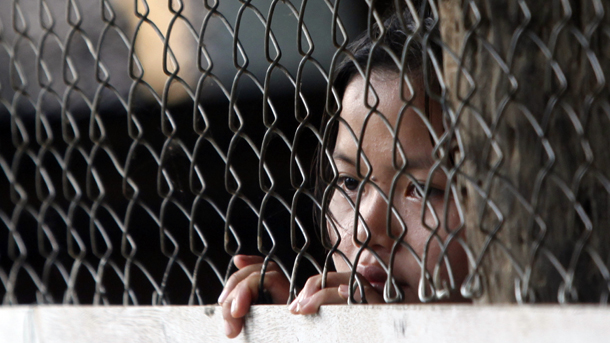MAE SOT, Thailand—Burmese war refugees who have been living by the Thai-Burmese border for decades are now taking part in resettlement workshops to prepare for returning home.
The move comes amid negotiations between the Burmese government and leaders of the ethnic rebel Karen National Union (KNU) regarding a sustainable peace settlement.
In an interview with The Irrawaddy in the Thai border town of Mae Sot on Thursday, Saw Robert Htwe, the chairman of Karen Refugees Committee, said that he is organizing workshops to train representatives from community-based organizations (CBOs) to be ready for the repatriation process.
Even though no timeframe is in place for the return of refugees, Saw Robert Htwe said that the training is simply to prepare in case repatriation takes place in the near future.
Several dozen CBO representatives have been invited to join workshops next week in Mae La refugee camp—the largest such camp in Thailand that houses an estimated 40,000 people.
Saw Robert Htwe also said that he will invite nongovernmental organizations (NGOs) such as the Thailand Burma Border Consortium (TBBC), UN High Commissioner for Refugees (UNHCR) and other humanitarian agencies to cooperate with the training as they have prior experience with repatriation programs.
“We will return to our homeland one day,” said Saw Robert Htwe. “It will not happen immediately. It could take five years or ten years … we do not know. But, if we are not prepared, we will not be adapted with the situation.”
“These [repatriation workshops] are just to prepare in advance,” he added.
There are more than 150,000 mostly ethnic Karen refugees who have been living in temporary camps by the Thai-Burmese border for around 25 years. They abandoned their homeland and fled to Thailand due to decades of civil war between central government troops and the KNU.
Speaking with The Irrawaddy on Thursday, Saw Tun Tun, the chairman of Mae La, said that representatives from seven different refugee camps will participate in the repatriation workshop and discussions on how the process should be conducted and what is necessary for returnees.
Saw Robert Htwe also said that he will ask various NGOs, including the TBBC and UNHCR, to provide assistance such as food, household materials, educational support and healthcare programs to the former refugees for at least three years before they can survive unaided.
However, he added that the resettlement of IDPs must come first and only then be followed by the repatriation of refugees.
Apart from refugees on the border, there are 200,000 internally displaced persons (IDPs) who have lived in temporary jungle shelters in KNU-controlled areas for decades due to the fighting.
On May 28, the Burmese government issued national identity cards to more than 30 ethnic Karen IDPs in Kyaukgyi town, Pegu Division. Until now they have been denied the opportunity to obtain such documentation.
The move marks the first time that Naypyidaw has granted ID cards to the thousands of Karen war refugees who for years have been subjected to violent attacks, murder, torture, rape and forced labor at the hands of government troops.
Despite the lack of an official timeframe for the repatriation of Burmese refugees, there are plans by the Thai government to accelerate the return process and close down all nine refugee camps on its border.
According to a report by The Bangkok Post on Tuesday, the Thai military will ask the government to hold talks with its Burmese counterparts about the return of Burmese refugees living in frontier zones.
On Monday, Thai Defense Minister Sukumpol Suwanatat met his Burmese opposite number Lt-Gen Hla Min for talks on bilateral issues during the 6th Asean Defence Ministers’ Meeting in Phnom Penh, according to The Bangkok Post report.
Last week, Sukumpol also talked to Thai Army chief Gen Prayuth Chan-ocha about preparations to send refugees back to Burma. Meanwhile, the KNU urged visiting Burmese democracy icon Aung San Suu Kyi—who is due to visit Mae La on Saturday—to campaign for refugee safety and a voluntarily return in accordance with the universal principals of human rights.
















